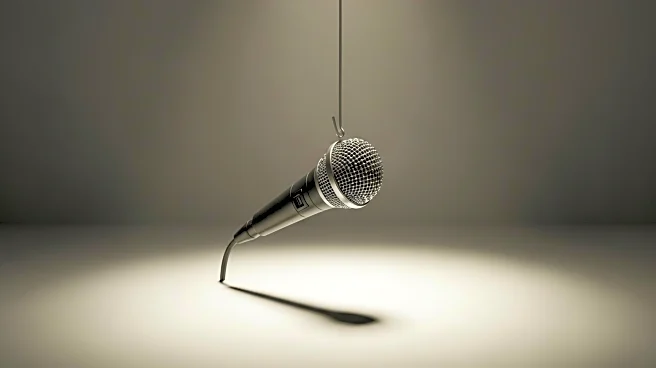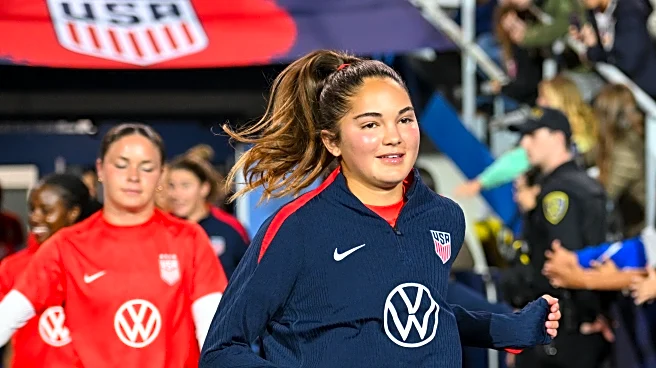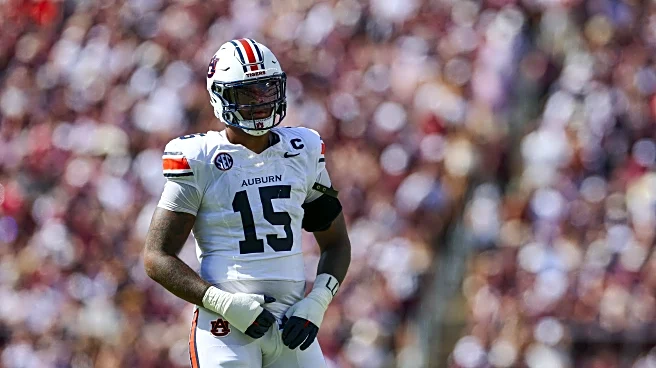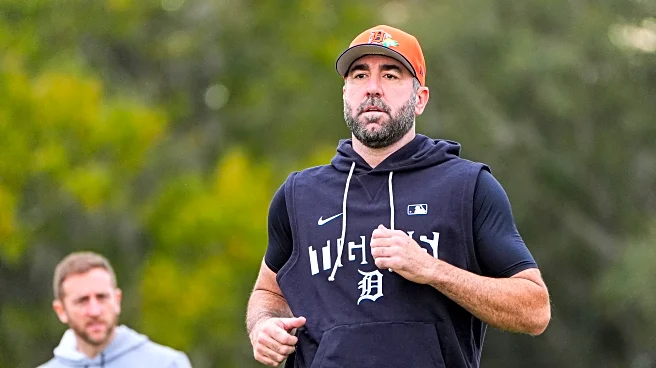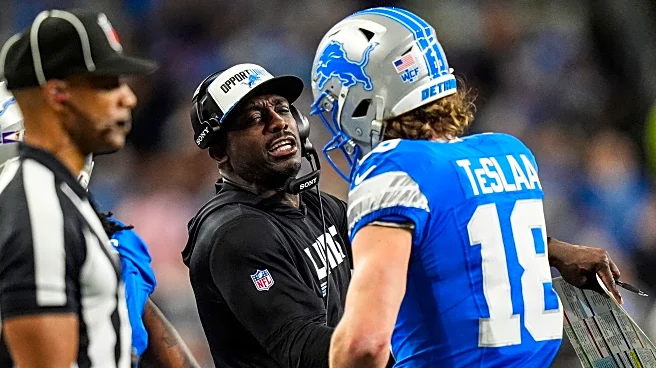What's Happening?
Jimmy Kimmel, a prominent TV host, has been indefinitely suspended from his show following comments he made regarding the shooting of Charlie Kirk. The suspension was announced by ABC shortly after Brendan Carr, the chair of the Federal Communications Commission (FCC), accused Kimmel of misleading the American public. The decision has sparked controversy, with leading Democrats criticizing it as an attack on free speech and an abuse of power. Meanwhile, President Trump has expressed approval, calling the suspension 'great news for America.' The situation highlights the ongoing tensions between media figures and regulatory bodies in the U.S.
Why It's Important?
The suspension of Jimmy Kimmel's show raises significant questions about the balance between free speech and regulatory oversight in the U.S. media landscape. It underscores the power of the FCC in influencing broadcast content and the potential implications for media freedom. The incident may have broader repercussions for how media personalities navigate controversial topics and the extent to which political figures can influence media regulation. This development could impact public discourse and the perceived independence of media outlets, affecting both industry practices and public trust.
What's Next?
The suspension is likely to provoke further debate among political leaders, media organizations, and civil society groups regarding the limits of free speech and the role of regulatory bodies. There may be calls for legislative or policy changes to address concerns about media freedom and regulatory power. Stakeholders will be closely monitoring the FCC's actions and any potential legal challenges that may arise. The situation could lead to increased scrutiny of media content and the regulatory processes governing it.
Beyond the Headlines
This incident may have deeper implications for the cultural and ethical dimensions of media regulation. It raises questions about the ethical responsibilities of media figures in shaping public opinion and the potential consequences of regulatory actions on cultural expression. The suspension could also influence long-term shifts in media practices, prompting discussions about the ethical boundaries of commentary and the role of media in a democratic society.
